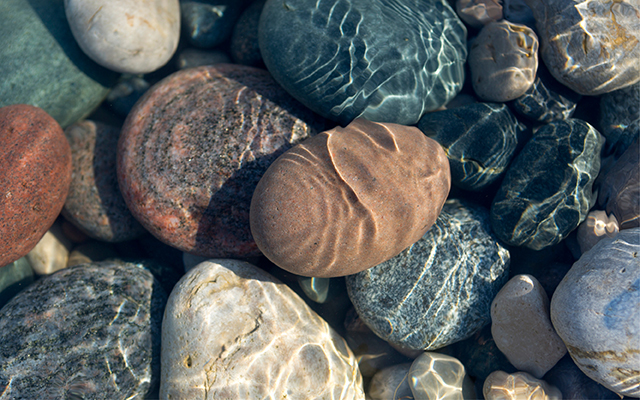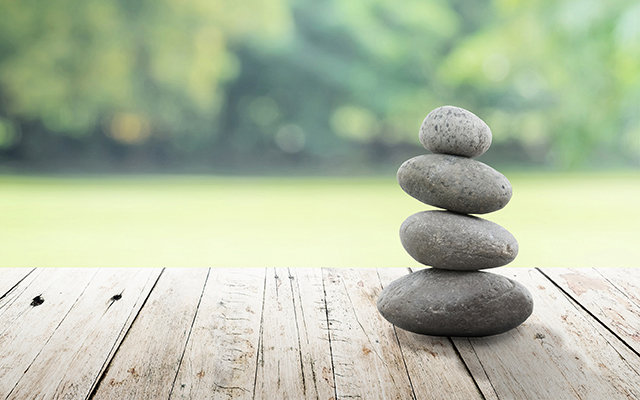Now that I’ve finally reached the stage in my life when climbing out of bed in the morning and going to the office seems like more of a blessing than a curse, everybody seems to be telling me it’s time to shift gears. The advice, however, tends to be a little contradictory: Quit your job, but don’t exhaust your savings. Slow down, but stay active. Make time for family, but travel the world.
Then there’s the notion, most recently conveyed by Patricia Hampl in the New York Times, that we boomers are so innately ambitious, so endlessly seeking something, that we’re stumbling into our dotage unwilling to loosen our grasp on our to-do lists. And the resulting “battle between striving and serenity,” Hampl argues, may be an affliction our restless generation is not well equipped to confront.
When her friends suggest meditation or yoga as an antidote to her own high blood pressure, insomnia, and frenzied schedule, for example, Hampl demurs. “Meditation is just another thing. Yoga? Another task, another item for the to-do list.”
Time Wasted?
Her solution is both simple and simplistic: Start wasting time. Give yourself over to what the lords of liberal arts used to call “the life of the mind” and what Hampl describes as “the sovereign sense of ease.”
“This isn’t the mind of rational thought, but the lost music of wondering, the sheer value of looking out the window, letting the world float along,” she muses. “It’s nothing really, this wasted time, which is how it becomes, paradoxically, charged with ‘everything,’ liberated into the blessed loss of ambition.”
Hampl, 72, is channeling Walt Whitman (“that great American lounger”) when it’s really Lao Tzu she should be consulting. The ancient Taoist sage and author of the Tao Te Ching expands the idea of “sovereign ease” from an occasional pleasure to a daily practice, one that can guide you through any chapter of your life.
Tom Hodgkinson was a 25-year-old London pub-crawler and inveterate slacker when he and a friend in 1993 launched The Idler, a magazine devoted to the art of leisure. Disgusted with corporate life, Hodgkinson embraced the Taoist philosophy of inaction, or wu wei, as an animating principle in his life. “Those wild old chuckling Chinese loved the image of the river, which takes the course of least resistance on its path from mountain to sea, and in doing so creates unique and beautiful curves,” he writes in his 2005 book, How to Be Idle. “Wu wei is about going with the flow in one’s everyday life; it is about surrendering one’s destiny to fate and gently floating downstream with detachment, wonder, and domdom.”
Cluttering up your days with endless tasks and obligations, he argues, is like rowing upstream. “They amount to a lot of huffing and puffing and very little movement.”
This may sound like little more than barroom philosophizing, but there’s some science to back it up. In his book Trying Not to Try, University of British Columbia professor Edward Slingerland cites the work of Harvard social psychologist Daniel Wegner, which explores the “ironic effects” of conscious, intentional effort. “He and his colleagues have amassed a large body of evidence suggesting that we get depressed when we’re consciously trying to be happy, anxious when we are trying to relax, and distracted when we’re trying to concentrate,” Slingerland notes. “When we try to consciously forget something, we remember it more clearly; when we try to make ourselves sleep, it makes our insomnia worse.”
Because we’ve been taught that striving consciously is the best way to reach our goals, he argues that we’re constantly overlooking the importance of what he calls “body thinking,” spontaneous reactions to conditions as they arise. In other words, going with the flow.
This can create some awkward moments at the office — as well as some life-changing insights — if Dale Davidson’s experience is any indication. The business consultant spent a month living by Taoist precepts as part of his ongoing Ancient Wisdom Project and was surprised by how much he could accomplish by following his natural energy levels. When he felt like working, he would work; when he didn’t feel the urge, he would sit in the company cafeteria and read or just sit and think. “It was fantastic,” he notes in his blog.
“Though I felt a little guilty for not getting more work done, that feeling dissipated after a week or so, when I realized I wasn’t getting less work done overall. The amount of work I did stayed constant,” he writes. “Just as we must work with external circumstances and not against them, we should also work with our natural energy rhythms. Not in an obsessive way, but rather, in a more observant and opportunistic way.”
Davidson found that it could be tricky to accurately assess when he was ready to work and when he would be better off relaxing, but as the month rolled on it became easier — and more rewarding. “Mastering the ability to align your external circumstances with your natural energy levels seems like a powerful way to get things done, reduce stress levels, and make life more pleasant overall.”
Rather than simply wasting time, as Hampl suggests, the Taoist approach offers those of us in the post-retirement chapter of our lives a way to free ourselves from our to-do lists without surrendering to a life of rumination. There are times when I enjoy nothing more than lying on the couch with a cat on my lap and staring at the afternoon sun streaming into the living room, and I never consider those moments wasted. But I also can’t ignore the satisfaction I still get from wrestling some unruly copy into submission.
Hampl may point to this as a sign of some lingering boomer ambition, an unhealthy attachment to my (quite truncated) to-do list, but she hasn’t seen me breaking away from an editing project to stroll up the street to the bookstore or pedaling across the river to the coffee shop when it’s time for a change of scenery. That might not be enough to convince her that I’m on a different path, but I suspect Lao Tzu would approve.



This Post Has 0 Comments